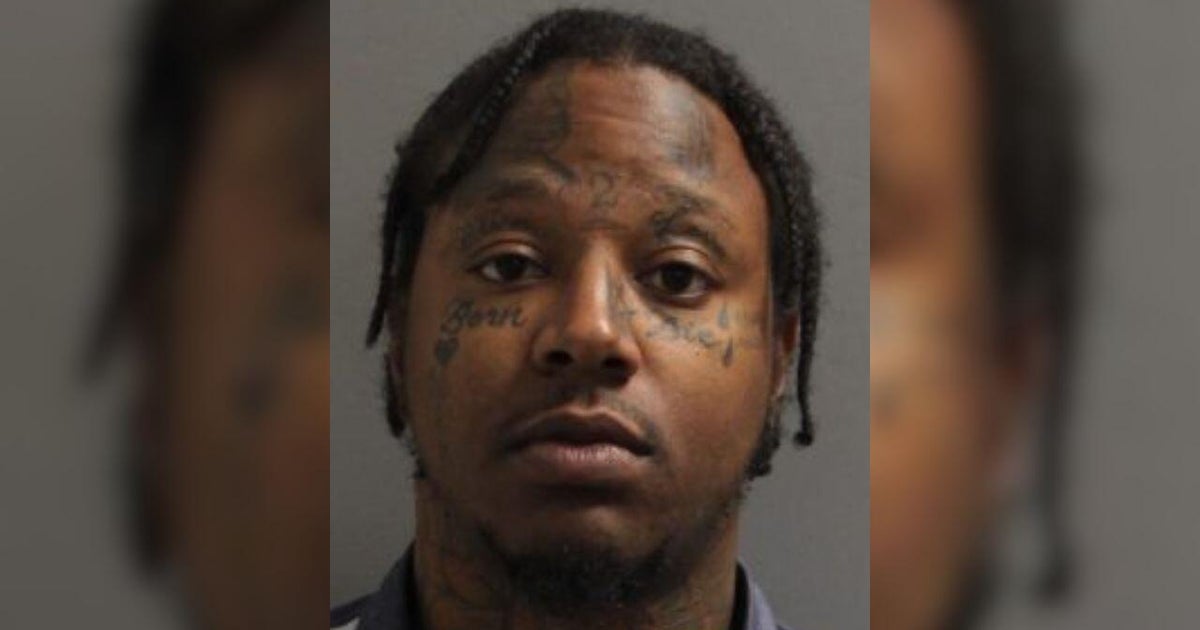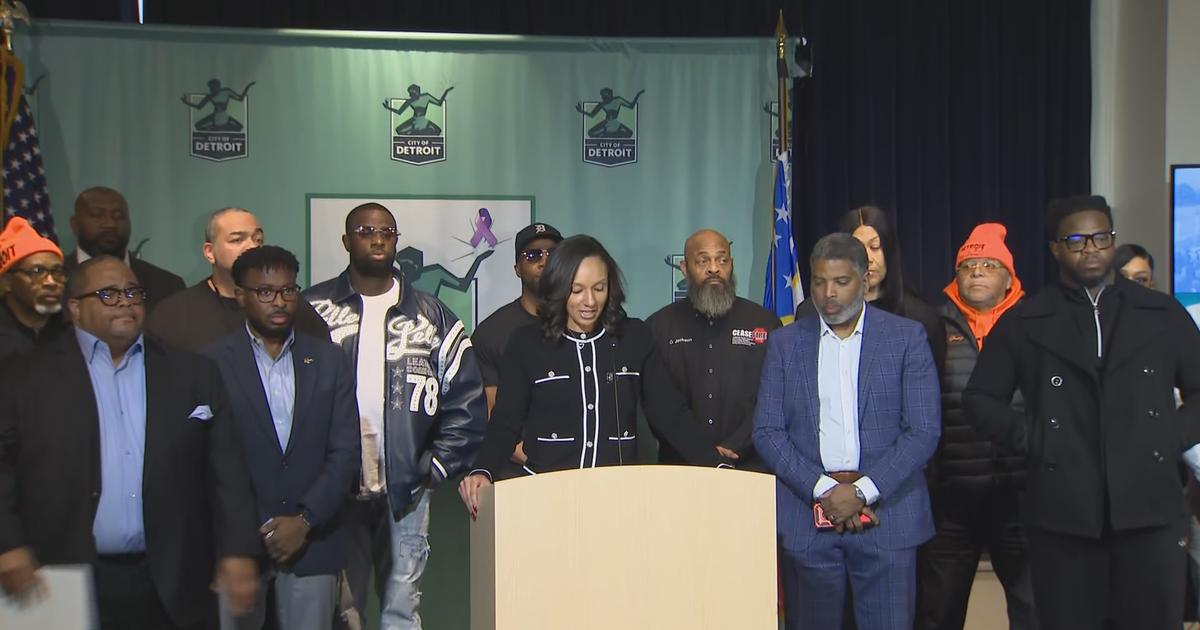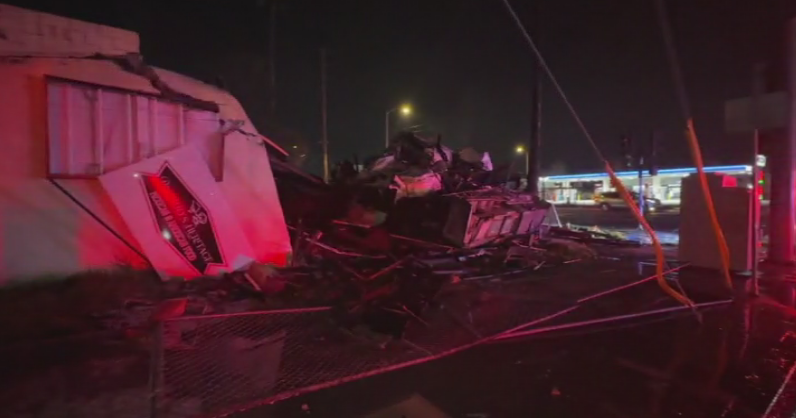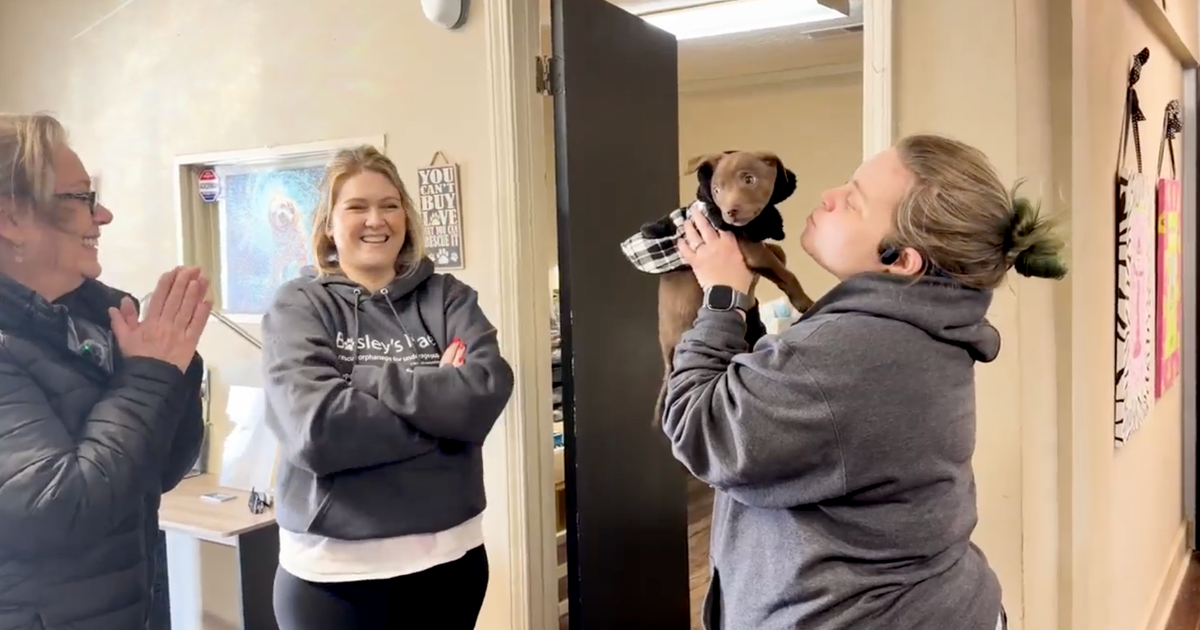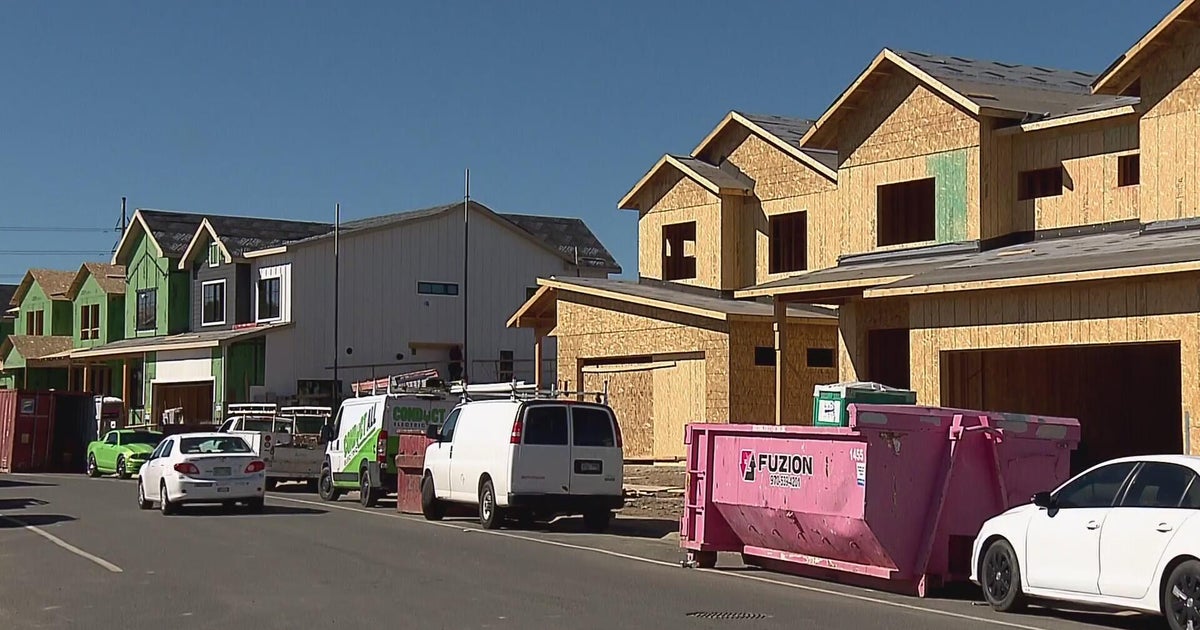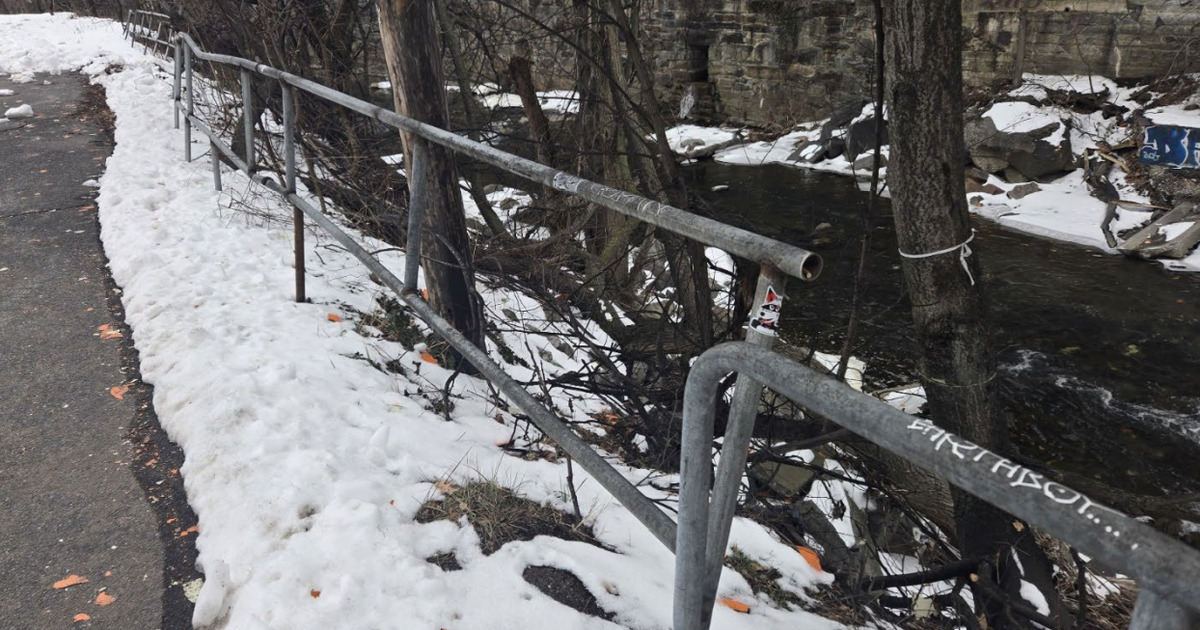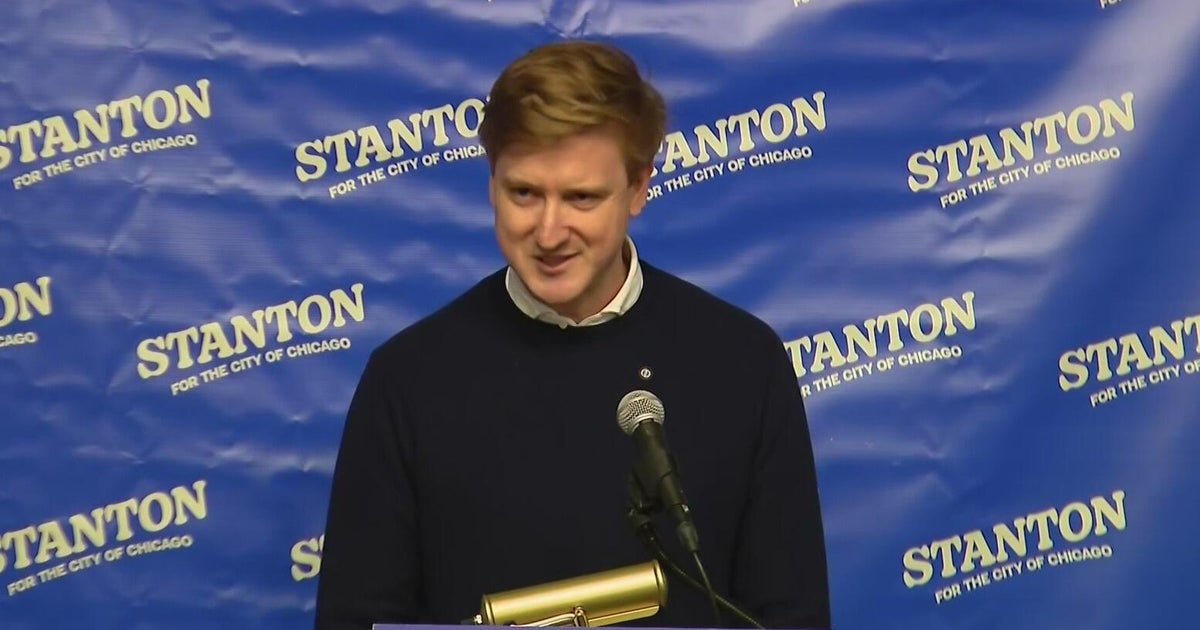Mayor Scott Steers $100 Million Toward Baltimore's Vacant House Problem
BALTIMORE (WJZ) -- Mayor Brandon Scott announced on Friday that he would steer $100 million from American Rescue Plan Act funds toward addressing the thousands of vacant and dilapidated houses that haunt Baltimore—like the one that killed three firefighters in January.
Baltimore continues to be plagued by an environment made possible by the thousands of houses that are crumbling, housing instability, and housing loss—issues that have been exacerbated by the COVID-19 pandemic, Scott said.
"Vacant properties or reduced property values increase blight, attract crime, and pose a nuisance to neighboring properties, and negatively impact the quality of life of Baltimoreans," he said during a press conference.
This announcement marks the largest ARPA allocation by the Scott Administration and brings financial support for housing and homeless initiatives together to nearly $200 million to tackle housing insecurity, city officials said.
The allocation of funds is divided into three pots: strategic capital investments, blight elimination and prevention, and resident protection/anti-displacement.
- Strategic Capital Investments ($56.3 million): The need for affordable housing developments across the City has only increased during the COVID-19 pandemic. These projects will support community development and affordable housing units in Coldstream/Homestead/Montebello, Park Heights, Uplands, O'Donnell Heights, and the Perkins-Somerset-Oldtown Transformation Plan area. This ARPA allocation leverages significant private sector investment in each of these critical projects – which will result in completed projects by the end of Mayor Scott's first term.
- Blight Elimination and Prevention ($39.7 million): These programs and projects will advance the Mayor's vision to address the City's vacant housing stock, help reduce public health disparities caused by environmental hazards, and tackle housing instability. They also help reverse the trend of negative equity in the city's "Middle Neighborhoods," where moderate-income, Black and Brown residents make up the majority of homeowners.
- Resident Protection and Anti-Displacement ($4 million): Workers in low-income households were more likely to lose their job or see pay reductions during the COVID-19 public health emergency. These projects provide legal services and utility assistance to prevent eviction and displacement to mitigate housing instability with low-income populations.
Scott's announcement comes as the city is struggling to find a way forward from the two-alarm fire that killed Lt. Paul Butrim, Lt. Kelsey Sadler, firefighter Kenny Lacayo, and injured firefighter John McMaster.
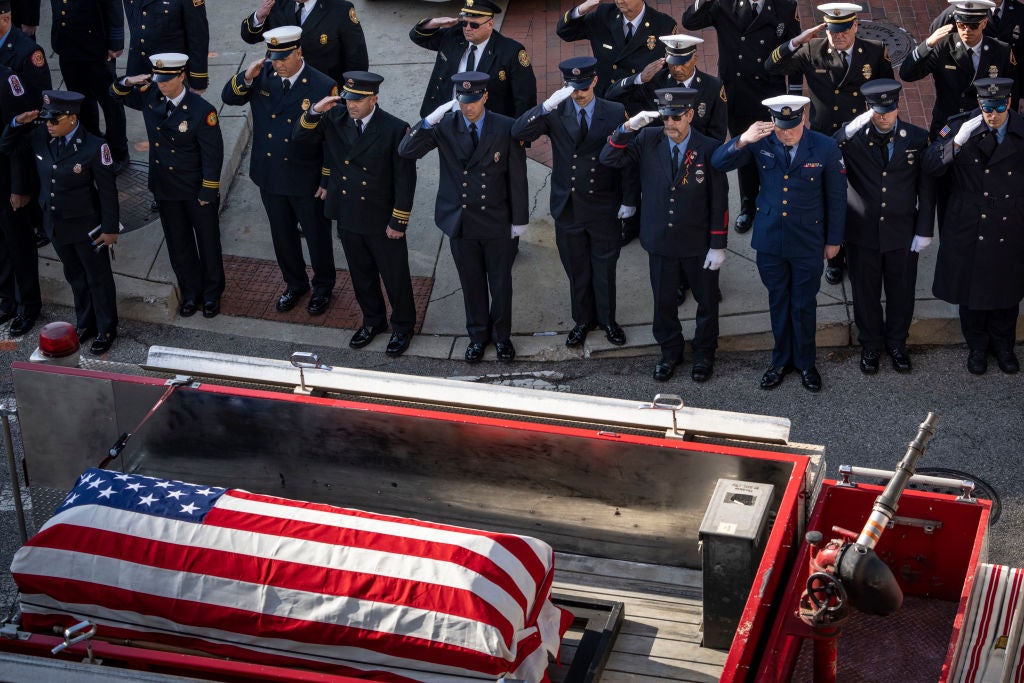
The three firefighters had been trying to extinguish a fire that was chewing away at a vacant house on South Stricker Street when part of the house collapsed on them.
"This is one of the most consequential undertakings of my administration and we will use everything—every resource at our disposal—to eliminate blight and ensure that our residents have access to resources that will keep long-time residents in their homes and foster new homeownership in Baltimore, especially for the Black middle-class," Scott said.
Following the fatal fire, Scott gave city departments a 30-day deadline to take stock of what they are doing to reduce the number of vacant buildings throughout the city and submit their findings to Chris Shorter, Baltimore's first city administrator.
Shorter said during the press conference that there were 14,952 vacant buildings in the city of Baltimore as of March 11.
"Of those, 13,508 are privately held the city's lack of title for privately owned vacant properties will require creative new partnerships between public and private sector entities to put units back into productive use," he said. "Tackling this problem will require significant financial and capital resources."
Shorter said his team met with internal and external stakeholders to develop and finalize 50-plus actionable recommendations for tackling Baltimore's vacant house problem.
"Somebody down at City Hall really needs to get on people," Samuel Carney of East Baltimore said Friday on North Avenue. "Maybe you need to sell it off to somebody who's going to do something with it."
Those recommendations will be published and tracked on the city's website alongside the mayor's Action Plan tracker, he said.
The complex issue of vacant and abandoned properties has plagued Baltimore for decades.
Rep. Kweisi Mfume (D-Md.) became a bit emotional as he described how Baltimore's vacant house problem has persisted throughout his four-decade political career.
"Forty-three years ago—some of you were around—43 years ago a much younger version of myself raised my hand and took the oath of office to be a part of this city council," he said. "Some of the vacants that are standing today were standing 43 years ago. That is sinful, should never happen."
Many of the vacant houses are privately owned by people who live in Florida, Texas, and New England "who continue to take a tax write-off and do nothing at all with the house," he said.
"It pains my heart to have to know that here 43 years later . . . we are still working on this issue," he said.
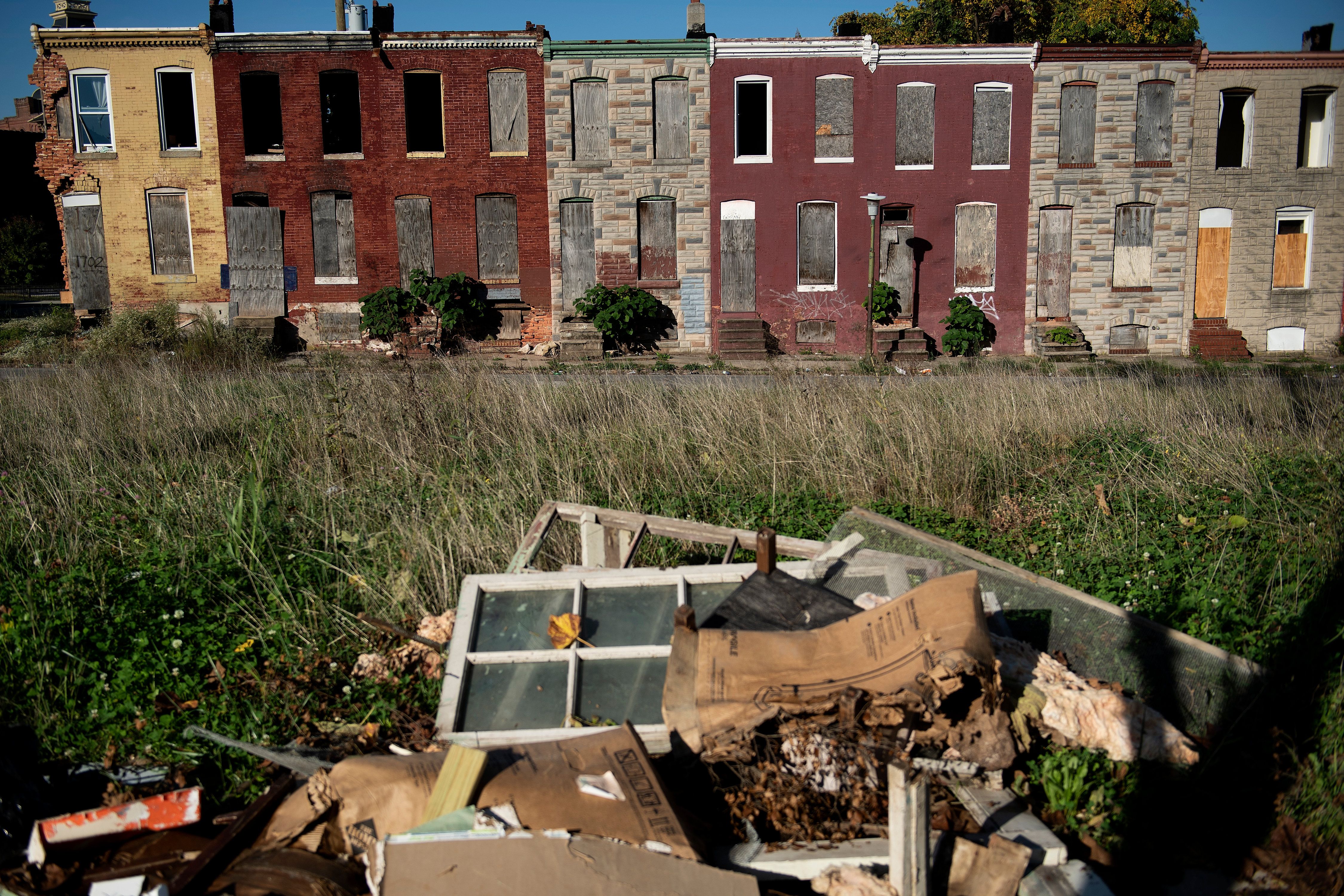
Housing Commissioner Alice Kennedy commended Scott for his decision to steer funding toward addressing the city's systemic problem with vacant houses.
The critical resources come at a critical time, just as people are struggling to recover from "the negative economic blow" of the COVID-19 pandemic, she said.
"We must fight for these communities and create new opportunities," Kennedy said. "To build healthier environments, we have to address the vacant inventory and provide housing and homeownership options. It's a holistic approach, not just to the built environment but to the humans that inhabit and live in that built environment."
Mayor Scott and Administrator Shorter said city officials are working with the Circuit Court to create a new docket to deal specifically with absentee property owners.
"(Owners) know we're going to be applying pressure in every way we can," Scott said.
